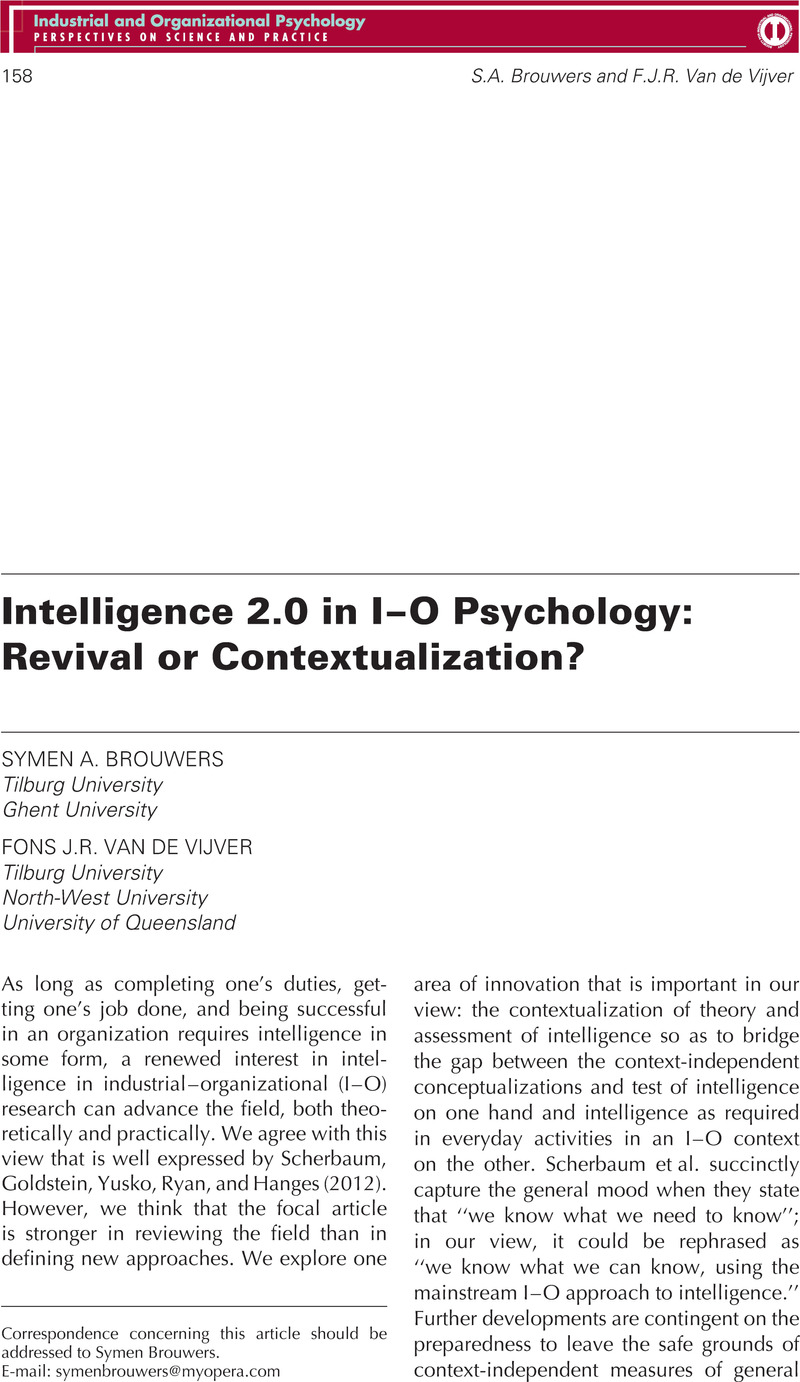Crossref Citations
This article has been cited by the following publications. This list is generated based on data provided by Crossref.
Hanges, Paul J.
Scherbaum, Charles A.
Goldstein, Harold W.
Ryan, Rachel
and
Yusko, Kenneth P.
2012.
I–O Psychology and Intelligence: A Starting Point Established.
Industrial and Organizational Psychology,
Vol. 5,
Issue. 2,
p.
189.
Soete, Britt De
Lievens, Filip
and
Druart, Celina
2013.
Strategies for dealing with the diversity-validity dilemma in personnel selection: Where are we and where should we go?.
Revista de Psicología del Trabajo y de las Organizaciones,
Vol. 29,
Issue. 1,
p.
3.
Neubert, Jonas C.
Mainert, Jakob
Kretzschmar, André
and
Greiff, Samuel
2015.
The Assessment of 21st Century Skills in Industrial and Organizational Psychology: Complex and Collaborative Problem Solving.
Industrial and Organizational Psychology,
Vol. 8,
Issue. 2,
p.
238.



